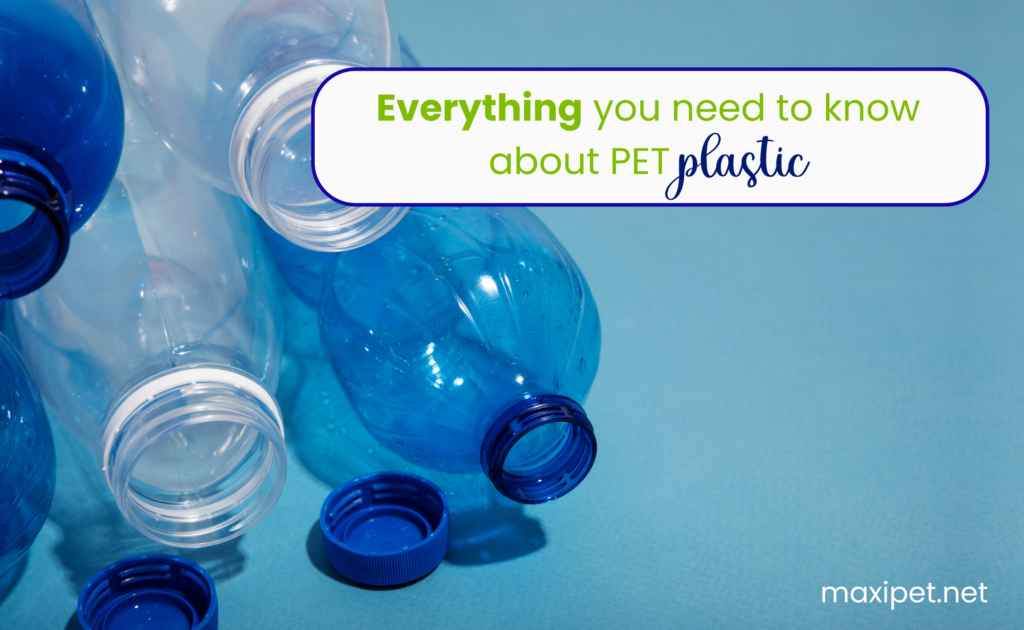Due to the continuous development in different industries, the demand for PET plastic has increased greatly on a global scale, to meet the needs of its consumers. If you are looking for the perfect material for your container and you are interested in learning more about PET plastic to choose the best option, don’t worry, here we explain everything you need to know.
A little history…
In 1941, PET plastic was discovered by the British scientists Whinfield and Dickson and was patented as a special polymer to make synthetic fiber in response to the need to replace cotton fabric from Egypt. Therefore, after its invention to the present day, this material is used as a fabric. It was not until 1952 that it began to be used as a protective film for food. However, 35 years passed before, in 1976, the industry chose PET plastic for its prominent use today: to create containers.
Characteristics of PET plastic
Polyethylene Terephthalate, better known as PET, is a highly versatile polymer. It is an extremely resistant material and easy to recycle, therefore, it is very friendly to the environment. PET is the most used material to manufacture plastic containers since it provides a barrier against oxygen and humidity, which makes it the perfect resin for the manufacture of food and pharmaceutical containers. Thanks to its lightness it is one of the main choices for the packaging industry and lastly, it is significantly economical compared to other materials.
In addition, one of the most notable characteristics of PET is that it is a 100% recyclable material and can be used to manufacture clothing, backpacks, shoes, or other functional or decorative items.
Number 1 in the plastic sorting
To continue making the most of the benefits of plastic, it is essential to sort and recycle it responsibly. According to the Society of Plastic Industries, the most common plastics are classified with a number from 1 to 7 and it is common to find them in the bottom of bottles or containers. The most widely used material for making plastic bottles is polyethylene terephthalate (PET), which is why it ranks number one on the list.
This classification is the first step for recycling to obtain better results. For this to be possible, plastics must be separated according to the fundamental properties of the material used to produce them. Some of the parameters are color, particle size, density, and electromagnetism. This is why manufacturers must indicate the type of plastic they used to create their products, as it simplifies the recycling process.
Advantages of PET recycling
The recycling of PET and in general, but mainly plastic, offers the possibility of giving a second life to the material. As a consequence, the recycling of plastic brings with it a series of environmental and even economic benefits. This means a saving of both natural and energy resources. Therefore, the main objective of recycled plastic is to promote a responsible and sustainable consumption practice, which helps to preserve and care for the environment. Among the many advantages of recycling PET plastic, the following stand out:
- Reducing the volume of plastic that reaches landfills and oceans.
- Non-renewable fuel savings during its manufacture.
- Less use of natural resources (water and energy).
If you are interested in acquiring a 100% recyclable, light, and resistant PET container, do not wait to contact our team.

